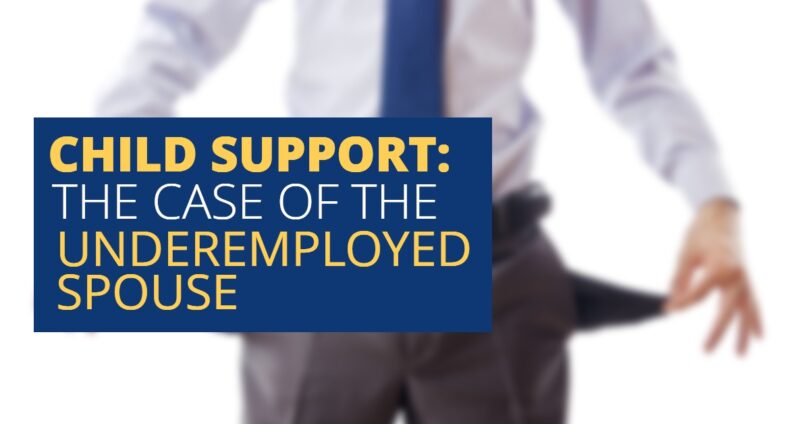They say times are hard, if you don’t believe it
You can just follow your nose
It don’t bother me—times are hard everywhere
We’ll just have to see how it goes.
~ Floater (Too Much to Ask) by Bob Dylan ~
Well, yes, Bob, we all know times have been hard, and you don’t need to follow your nose. You can see it in the divorce courts. And, for divorcing parents facing the calculation of child support, it can bother you a lot, and just waiting to see where it goes can be costly. You need to be proactive and ready to prove your case.
Underemployment can Be Considered When Determining Child Support
A prime example is the Tennessee Court of Appeals’ July 10, 2013 decision in Rogin v. Rogin, a case in which divorcing parents battled out the issue whether the husband would be penalized for making less money than he should have been for purposes of calculating child support.
In Rogin, the husband’s most recent full time employment, at a real estate company, had him earning approximately $95,000.00 per year. He had lost that job when the company downsized. Although he had an Ivy League college degree and an MBA from Vanderbilt, he was unable to find a job of like pay grade.
At trial, the wife’s expert testified that, in his opinion, the husband was capable of earning an annual income of between $75,000.00 and $125,000.00 rather than the approximately $1,700.00 per month he was then earning from occasional consulting jobs. The wife contended that the husband had not looked hard enough for a better paying job.
The trial court held that the husband was willfully underemployed, and imputed $36,000 a year in income to him. He appealed. So did the mother, who argued that more income should have been imputed to him.
There Must be Clear Evidence that Underemployment is Willful
The Court of Appeals reversed. The Court first noted:
[The Child Support Guidelines}provide that: ‘[i]mputing additional gross income to a parent is appropriate … [i]f a parent has been determined by a tribunal to be willfully and/or voluntarily underemployed or unemployed’…. However, to trigger this portion of the child support guidelines and ‘[t]o calculate a child support award based on earning capacity rather than actual net income, there must be a threshold finding that the obligor parent is willfully and voluntarily underemployed or unemployed.’
The Court of Appeals did not find enough evidence that the underemployment of the father was willful and voluntary to uphold the original decision. While it acknowledged that the courts may impute income, it also made it clear that voluntary unemployment should be clear and certain. This was the Court’s observation of the case:
It is undisputed in this case that Father lost his most recent full-time employment due to lay-offs that were not within his control. Accordingly, the issue in this case is not whether Father’s choice to take a lesser paying job causes him to be underemployed, but whether Father has engaged in a pattern of willful behavior since the lay-off that has resulted in substantially less income for Father and, therefore, less support for the children.
Because the father could show that he actively pursued a higher-paying job, the Court of Appeals rejected the trial court’s conclusion that the father should have been able to earn a higher income. Weight was also given to the fact that the father worked in an industry that was severely hit by the recession. The Court found:
Father’s education and experience are in the real estate financial sector, a sector particularly affected by the downturn in the economy. From Father’s testimony, he used traditional means to seek employment in this field. In addition … Father asked Mother’s financial advisors and her family for assistance in meeting potential employers. Father’s networking succeeded in finding Father sporadic consulting work, but failed to result in full-time employment at a level consistent with his previous employment…. The trial court made no adverse credibility findings against Father’s testimony concerning his sincere, yet fruitless, efforts to find a job.
Bottom line: A divorcing parent whose income has dropped precipitously due to unemployment or underemployment may face the imputation of higher income for child support purposes, but only if it can be proven that the unemployment or underemployment is voluntary and willful. If you do the best you can reasonably be expected to do under the circumstances, the other spouse can cry about it all they want.
As Dylan says at the end of the same song:
“Sometimes somebody wants you to give something up, and tears or not, it’s too much to ask.”





